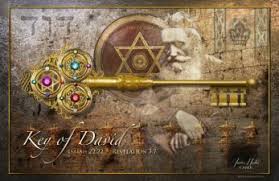How Odd of God to Choose the Jews
![]()

![]()
Notes by Andrew Wilson | Wednesday 30 March 2011
To many, the Old Testament seems a very strange text. No doubt there are many reasons for this – people sacrifice animals, swap sandals, lie on their side for months at a time, and go through elaborate rituals to cleanse their houses from rising damp – but in the public imagination, perhaps the biggest reason is very simple: the election of Israel.
It just seems so peculiar that one man, and through him one nation, should be particularly favoured by God. And for many, it is not just strange but indefensible that this nation is then commanded to conquer a piece of land by force, even though they are frequently no better than the people previ ously living there. How can the unconditional election of Israel possibly fit with the character of God?
ously living there. How can the unconditional election of Israel possibly fit with the character of God?

Bio: Andrew is Teaching Pastor at King's Church London, and has degrees in history and theology from Cambridge (MA) and King's College London (PhD). He is a columnist for Christianity Today, and has written several award-winning books, most recently God of All Things. Andrew is married to Rachel and they have three children: Zeke, Anna and Samuel. Views he expresses here are his own, and do not represent those of Newfrontiers or any particular church. Twitter: @AJWTheology
![]()
Romans 9, 10, 11 
God’s Election of Israel6 It is not as though the word of God had failed. For not all Israelites truly belong to Israel, 7 and not all of Abraham’s children are his true descendants; but ‘It is through Isaac that descendants shall be named after you.’ 8 This means that it is not the children of the flesh who are the children of God, but the children of the promise are counted as descendants. 9 For this is what the promise said, ‘About this time I will return and Sarah shall have a son.’ 10 Nor is that all; something similar happened to Rebecca when she had conceived children by one husband, our ancestor Isaac. 11 Even before they had been born or had done anything good or bad (so that God’s purpose of election might continue, 12 not by works but by his call) she was told, ‘The elder shall serve the younger.’ 13 As it is written, ‘I have loved Jacob,14 What then are we to say? Is there injustice on God’s part? By no means! 15 For he says to Moses, ‘I will have mercy on whom I have mercy,16 So it depends not on human will or exertion, but on God who shows mercy. 17 For the scripture says to Pharaoh, ‘I have raised you up for the very purpose of showing my power in you, so that my name may be proclaimed in all the earth.’ 18 So then he has mercy on whomsoever he chooses, and he hardens the heart of whomsoever he chooses. God’s Wrath and Mercy‘Those who were not my people I will call “my people”, and her who was not beloved I will call “beloved”. ’27 And Isaiah cries out concerning Israel, ‘Though the number of the children of Israel were like the sand of the sea, only a remnant of them will be saved; 28 for the Lord will execute his sentence on the earth quickly and decisively.’ 29 And as Isaiah predicted, ‘If the Lord of hosts had not left survivors to us, Israel’s Unbelief‘See, I am laying in Zion a stone that will make people stumble, a rock that will make them fall,10:1 Brothers and sisters, my heart’s desire and prayer to God for them is that they may be saved. 2 I can testify that they have a zeal for God, but it is not enlightened. 3 For, being ignorant of the righteousness that comes from God, and seeking to establish their own, they have not submitted to God’s righteousness. 4 For Christ is the end of the law so that there may be righteousness for everyone who believes. Salvation Is for Everyone‘The word is near you,(that is, the word of faith that we proclaim); 9 because if you confess with your lips that Jesus is Lord and believe in your heart that God raised him from the dead, you will be saved. 10 For one believes with the heart and so is justified, and one confesses with the mouth and so is saved. 11 The scripture says, ‘No one who believes in him will be put to shame.’ 12 For there is no distinction between Jew and Greek; the same Lord is Lord of all and is generous to all who call on him. 13 For, ‘Everyone who calls on the name of the Lord shall be saved.’ 14 But how are they to call on one in whom they have not believed? And how are they to believe in one of whom they have never heard? And how are they to hear without someone to proclaim him? 15 And how are they to proclaim him unless they are sent? As it is written, ‘How beautiful are the feet of those who bring good news!’ 16 But not all have obeyed the good news; for Isaiah says, ‘Lord, who has believed our message?’ 17So faith comes from what is heard, and what is heard comes through the word of Christ. 18 But I ask, have they not heard? Indeed they have; for ‘Their voice has gone out to all the earth,19 Again I ask, did Israel not understand? First Moses says, ‘I will make you jealous of those who are not a nation;20 Then Isaiah is so bold as to say, ‘I have been found by those who did not seek me;21 But of Israel he says, ‘All day long I have held out my hands to a disobedient and contrary people.’ Israel’s Rejection Is Not Final7 What then? Israel failed to obtain what it was seeking. The elect obtained it, but the rest were hardened, 8 as it is written, ‘God gave them a sluggish spirit,9 And David says, ‘Let their table become a snare and a trap, The Salvation of the Gentiles13 Now I am speaking to you Gentiles. Inasmuch then as I am an apostle to the Gentiles, I glorify my ministry 14 in order to make my own people jealous, and thus save some of them. 15 For if their rejection is the reconciliation of the world, what will their acceptance be but life from the dead! 16 If the part of the dough offered as first fruits is holy, then the whole batch is holy; and if the root is holy, then the branches also are holy. 17 But if some of the branches were broken off, and you, a wild olive shoot, were grafted in their place to share the rich root of the olive tree,18 do not vaunt yourselves over the branches. If you do vaunt yourselves, remember that it is not you that support the root, but the root that supports you. 19 You will say, ‘Branches were broken off so that I might be grafted in.’ 20 That is true. They were broken off because of their unbelief, but you stand only through faith. So do not become proud, but stand in awe. 21 For if God did not spare the natural branches, perhaps he will not spare you. 22 Note then the kindness and the severity of God: severity towards those who have fallen, but God’s kindness towards you, provided you continue in his kindness; otherwise you also will be cut off. 23 And even those of Israel, if they do not persist in unbelief, will be grafted in, for God has the power to graft them in again. 24 For if you have been cut from what is by nature a wild olive tree and grafted, contrary to nature, into a cultivated olive tree, how much more will these natural branches be grafted back into their own olive tree. All Israel Will Be Saved‘Out of Zion will come the Deliverer;28 As regards the gospel they are enemies of God for your sake; but as regards election they are beloved, for the sake of their ancestors; 29 for the gifts and the calling of God are irrevocable. 30Just as you were once disobedient to God but have now received mercy because of their disobedience, 31 so they have now been disobedient in order that, by the mercy shown to you, they too may now receive mercy. 32 For God has imprisoned all in disobedience so that he may be merciful to all. 33 O the depth of the riches and wisdom and knowledge of God! How unsearchable are his judgments and how inscrutable his ways!36 For from him and through him and to him are all things. To him be the glory for ever. Amen. |
| From Guilt to Glory -- Exhibited | |
|---|---|
| Has God Failed? | Romans 9:1-13 |
| Let God be God | Romans 9:14-33 |
| How to be Saved | Romans 10:1-13 |
| Have they not Heard? | Romans 10:14-21 |
| There's Hope Ahead | Romans 11:1-24 |
| Our Great and Glorious God | Romans 11:25 - 12:1 |


The Wife of Yahweh and the Bride of Christ

![]()
Notes by Lambert Dolphin

Library
Email is welcome
Lambert Dolphin's Place
Recent and Recovered Articles
Newsletters Old and New
May 3, 2022.
